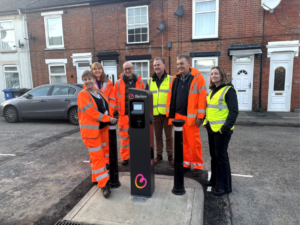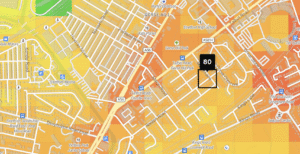London could become a private car-free zone by 2030, with Transport for London (TfL) offering free bus travel and access to a ride-hailing service of electric cars, a think tank has said.
The Away With All Cars report by the think tank Common Wealth says that a new public-focused transport system in the UK’s capital city – based around the Tube, ride-sharing and active travel – would help reduce the UK’s carbon emissions.
The authors of the report added that the move could pave the way to giving the UK a net-zero emissions transport system.
‘Deliberate choices by governments gave us the transport system we have, and they can give us the transport system we need to prosper in the 21st century too,’ the report’s author Leo Murray said.
‘But first we need the courage to imagine better – and then to demand it.’
The report says that the number of cars in the UK has grown every year since World War II, with cars contributing to almost two-thirds of road transport emissions.
Transport is currently the UK’s largest sectoral source of carbon emissions, accounting for a third of CO2 emissions last year according to BEIS figures.
To get the UK on a pathway consistent with the goals of the Paris Agreement, the UK must reduce its overall traffic volumes by 20-60% by 2030, the report added.
London is the only city in the UK whose traffic is declining in the long term, largely due to its high-quality public transport which is ‘consistently ranked in the top ten cities worldwide’, it said.
Despite this, London is ‘still the most congested city in the UK, as well as one of the most polluted’.
To combat this, the report suggests that private cars could be ‘disappeared from Greater London’ by 2030.
This could be achieved by creating more joined-up walking routes and offering Londoners free bus rides as well as access to options like e-bikes, e-scooters and e-rickshaws, all accessible via a TfL app.
Cllr Caroline Russell, chair of the London Assembly’s Environment Committee, welcomed the report, tweeting: ‘We need to be thinking big picture, so it’s good to see a report that can imagine life beyond private car use. It’s all doable – we just have to want to do it.’
However, the roadside assistance company the RAC said that many people in London would struggle to adapt to life without their vehicles.
A TfL spokesperson commented: ‘We need to enable many more people across London to switch their journeys from cars if we are to tackle some of the biggest challenges facing the capital, such as toxic air pollution, the global climate emergency, road danger and obesity.
‘This is why we’re investing a record £2.3bn in creating healthier streets where walking, cycling and public transport are the natural choice for all journeys, and we want 80 per cent of journeys to be made in these ways by 2041.’
Earlier this year, London mayor Sadiq Khan announced that London will close several major streets to private cars to celebrate Car Free Day on 22 September.
Photo Credit – Pixabay
















